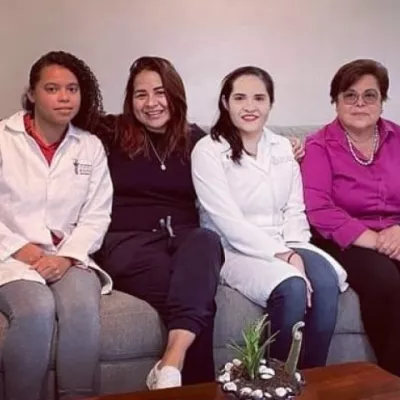
Project description
Project overview:
This project “Restoring gut health in Nigeria’s vulnerable children: the power of Ogi as a probiotic solution” chronicle how a nation can harness nature for its strength to overcome its health challenges. One of the challenges of Nigeria is high infant mortality caused by diarrhoea and worsen by hunger driven-malnutrition in children. Diarrhoea alone in Nigeria is the second killing disease after malaria, with a national prevalence rate of 18.8% and contributing to the statistics of 844,000 child deaths per year. This project aims at exploring a commonly available and inexpensive traditional fermented food globally called ogi (akamu) to restore gut microbiota in children suffering from diarrhoea and mitigate hunger- induced malnutrition.
Our team:Professor Nwidu, L.L (PI) & Prof Afiero, O.E; Dr. Ibezim, N.E.; Dr Amaka Awanye & Dr Sokiprim Akoko (CIs); Ph.D students: Pharm. Esom-Ibe, E.A. & Dr Udochukwu, P.E.; M.Sc. students Pharm. Ewurum, V.E.& Pharm. Ben-Njoku, C.C.
The project seeks to demonstrate that the controlled consumption of a locally fermented food “Ogi” can optimize gut microbiota; supply micro- and macro-nutrients that support gut health; improve nutritional status, immune and metabolic function; confirm poor community perception of ogi as gut heath promoting food and the need of robust educational intervention to promote ogi as a probiotic nutraceutical. This project is significant as it will enhance holistic health and guarantee food security and will help achieve SDG 2 (zero hunger) and SDG 3 (good health and wellbeing).
We intend to:
(i) Standardized the production, composition and preparations of ogi from the raw material,
(ii) Execute a pilot randomized controlled trials (RCT) with 80 uder-5 children in four Primary Health Centres (Rumuigbo, Rumueme Ozoba and Aluu) and a secondary health facility, Obio cottage hospitals to evaluate the probiotic potentials of Ogi.
(iii) Evaluate the microbiota of stool pre-feeding of ogi and 8 weeks post feeding of ogi using microbiological, biochemical and molecular techniques.
(iv) Asess nutritional status, anthropometric, metabolic profiles pre- and post-feeding of ogi;
(v) Use Focus Discussion Group Surveys (FDGS) tool to assess community perception of ogi’s cultural acceptability, and as health intervention probiotic products.
(vi) Launch a robust health education campaign to heighten Ogi probiotic potentials With Success in the pilot study, we will scale up the project to empower 500 vulnerable undernourished children with standardized 5 g pack of Ogi daily for 8 weeks in Port Harcourt. Robust engagement with health practitioners in the health facilities, antenatal mothers, local Ogi producers, women groups and co-operatives, food vendors, nutritionist and local government authority officials in Port Harcourt, and the Rivers State Ministry of health officials.
The expected outcomes from the study includes:
(a). production of standardized ogi with probiotic potential for improving gut microbiota, nutritional status, metabolic markers and gut health;
(b). positioning of ogi as a nutritional support for vulnerable undernourished children
(c). promoting ogi from local unrecognized nutritional product to global microbiota gut health support
(d). Generate awareness and acceptance of Ogi as a functional food,
(e). Ogi will serve as a source of economic empowerment and food security.
3 Questions to Prof. Lucky Legbosi Nwidu
What is the relationship between your project and Microbiota?
Microbiota are communities of microorganisms, bacteria, viruses, fungi, and other microbes, residing in and on the human body, but in the context of our project, microbiota in the gut. Probiotics: Probiotics are live microorganisms that, improve or restore the gut microbiota especially when consumed in adequate amounts. The nexus between our project and microbiota, is that ogi processing involves a host of probiotics and which consumption will definitely boost gut microbiota.
How your project based on traditional food (“Ogi”) can restore the intestinal microbiota in children in Nigeria?
The fermentation process of ogi introduces probiotics like Lactobacillus plantarum which enhances digestion and absorption nutrient; Lactobacillus fermentum which supports the immune system; Lactobacillus acidophilus which maintains gut flora balance, preventing diarrhoea; Streptococcus lactis: Produces lactic acid to boost gut health and Leuconostoc mesenteroides which inhibits harmful bacteria growth. On consumption of Ogi by vulnerable Nigerian children, these probiotics will restore intestinal microbiota.
How the Henri Boulard Award sill support your project
Funding is critical components to actualise implementation and impact of any project: The HBA will assist us to support key project activities, buying of critical equipment like electrical grinder, dehydrator; buy reagents required for microbiological, biochemicals and molecular analysis. Support community engagement to promote advocacy and create awareness. Ensure sustainability & scalability and long-term impact of the project.

Prof. Lucky Legbosi Nwidu talking about her winning project
Henri Boulard Award's winning projects

Orchestrating microbiome in pediatrics: A paradigm shift from maternal health to lifelong wellness via early-Life interventions

Metagenomic approach to monitoring pathogens and antibiotic resistance genes in public wastewater system in Mexico

Denormalizing Metronidazole use as first line treatment of acute Diarrhea in Nigeria

Towards eradicating water-borne gut diseases in Nigeria; development of cheap nanosized rice husk-based zeolite water filtration candles for common household usage


Gut microbiome dysbiosis in Hirschsprung-associated enterocolitis in Vietnamese children


Validation of a screening questionnaire designed to evaluate the gut dysbiosis risk and its relationship with the gut ecosystem of Mexican children


Curbing the menace of rotavirus disease in Agbor community and raising awareness on the need for early childhood vaccination


Vaginal microbiota and Cameroonian women's health: mapping and increased awareness


To set up a reproductive health facility to address safe contraception methods and the myths behind the use of Ampiclox Capsule as female contraceptive in Nigeria


Waster-based epidemiology linking the microbiome profile of virus, fungi and bacteria for prediction of COVID-19 pandemic in Thailand as an epidemiological surveillance tool

